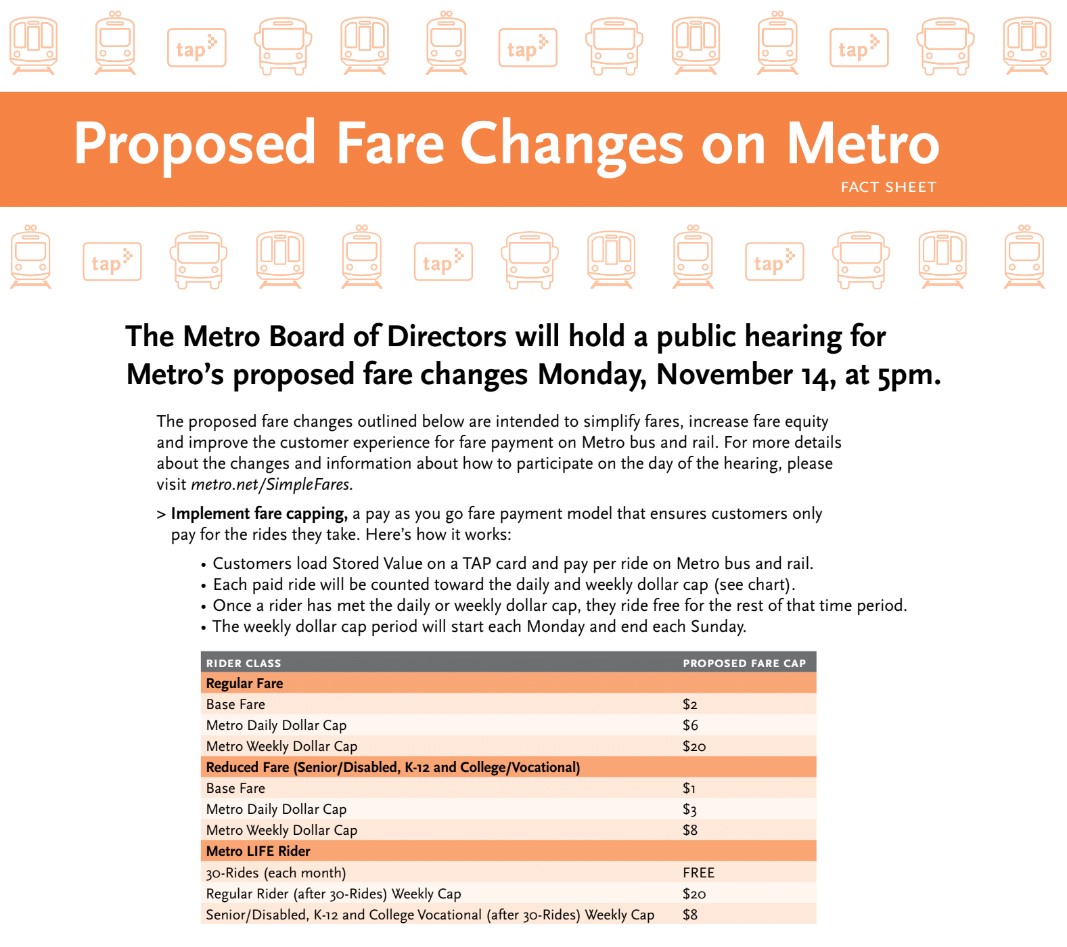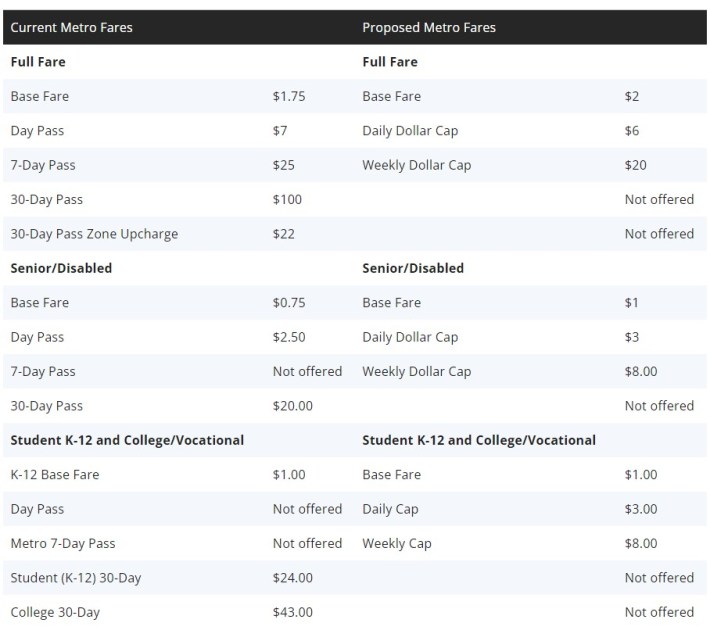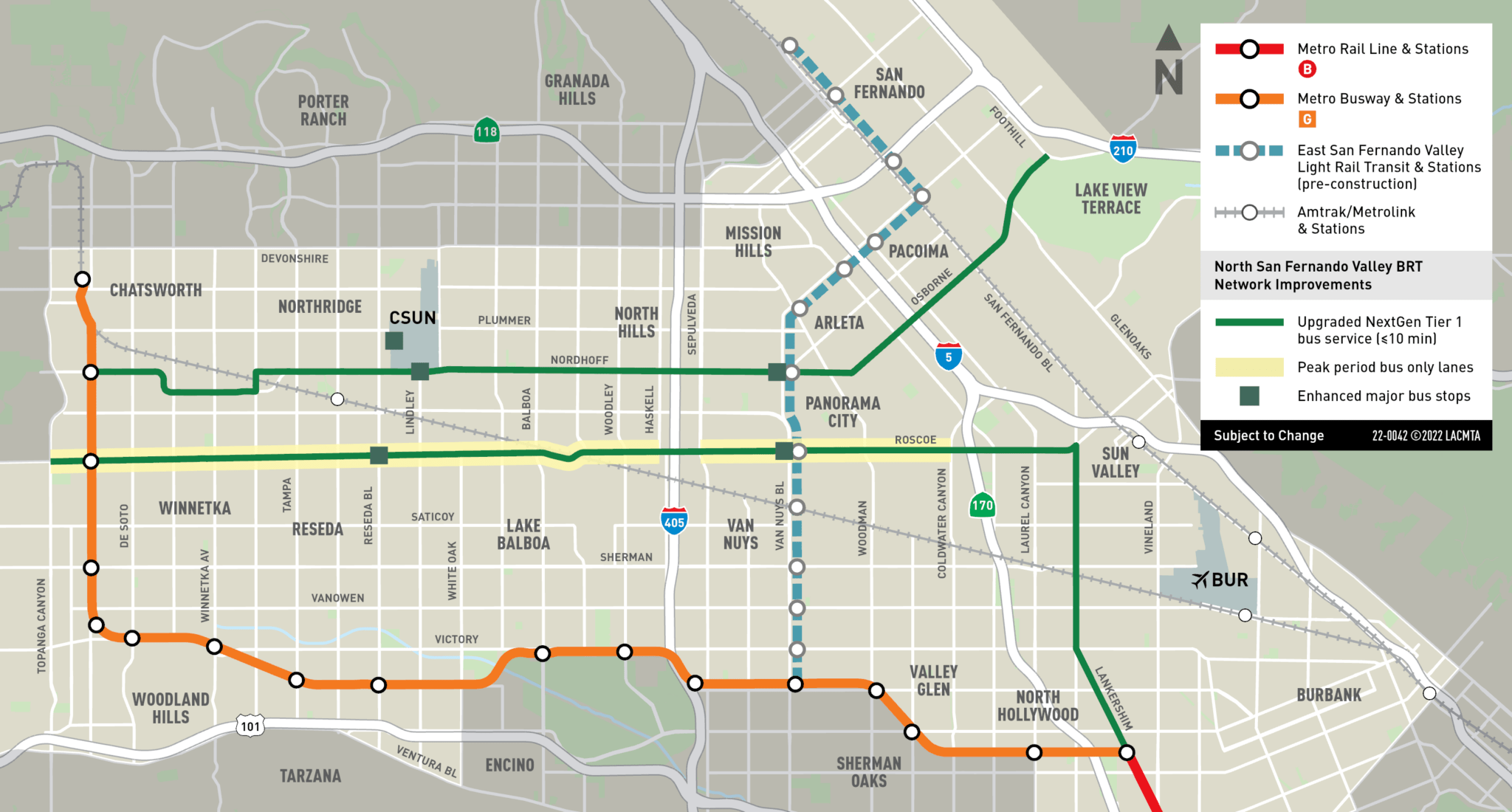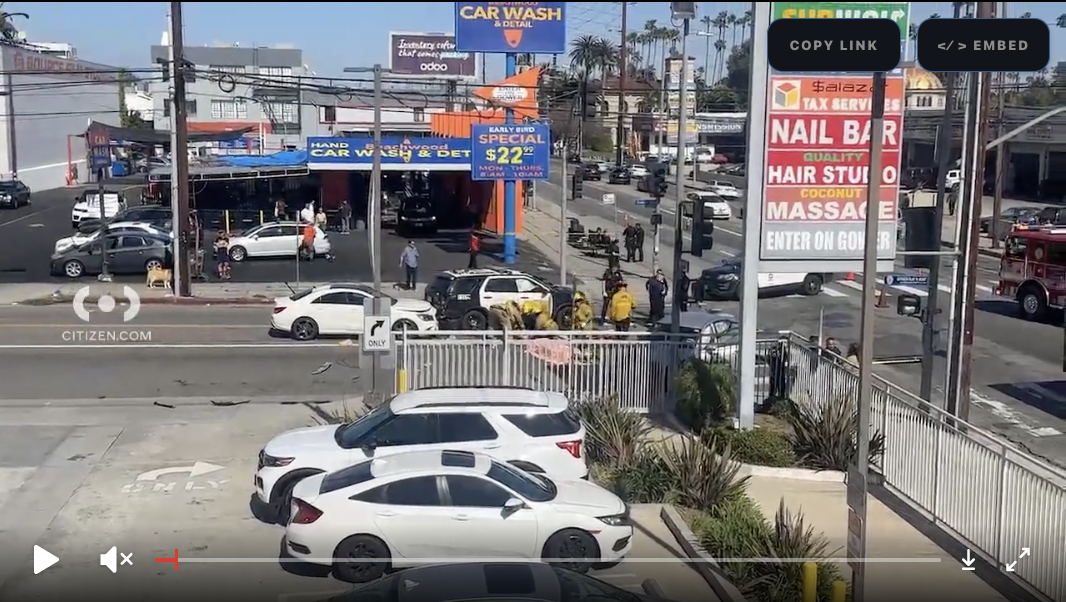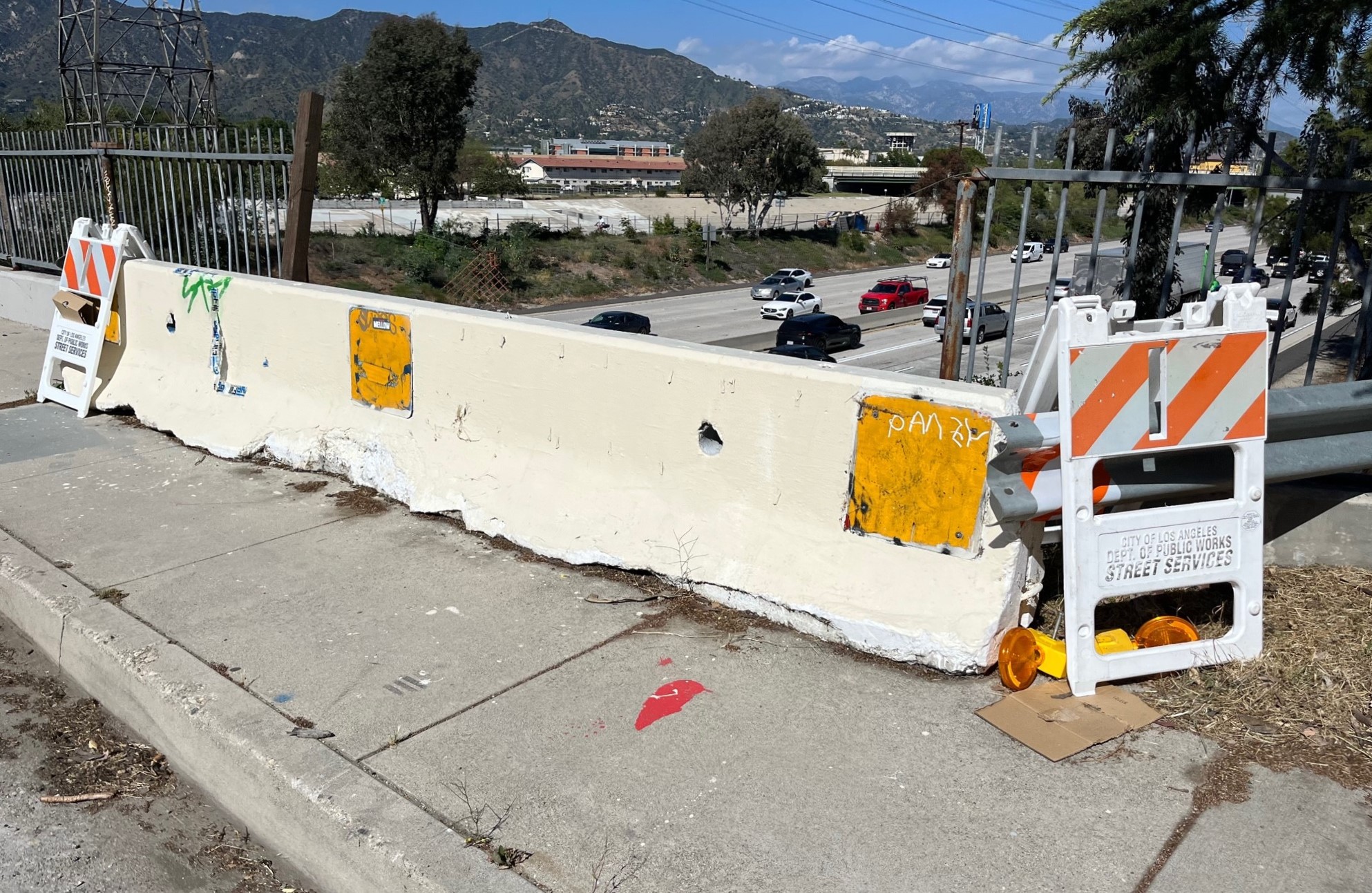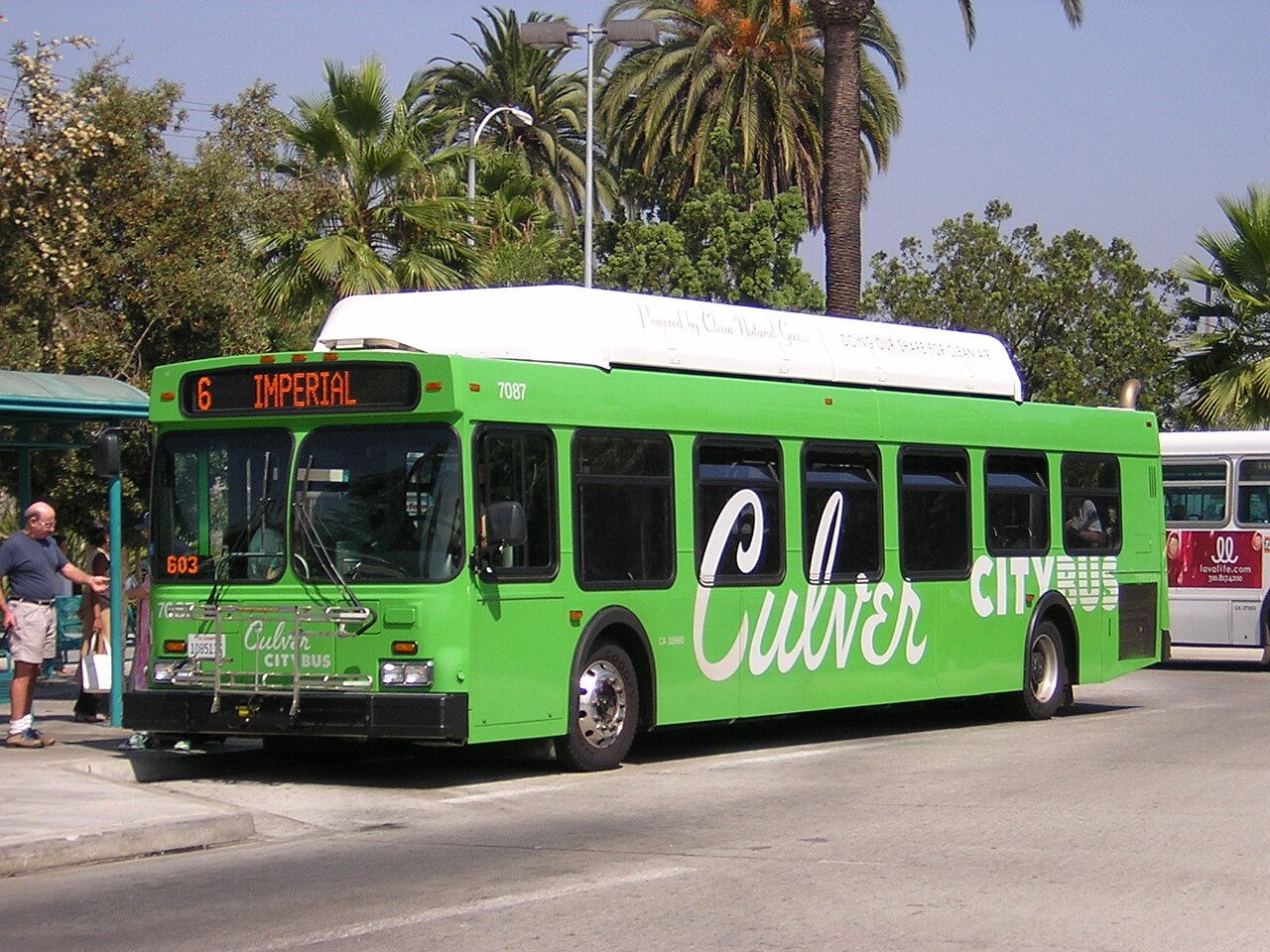Next Monday at 5 p.m., Metro will convene a hearing on proposed "fare changes." Metro is dressing up this fare hike in neutral-sounding language: "simplify fares" that "increase fare equity and improve the customer experience." But it is nonetheless a fare hike.
Metro's base transit fare would increase from $1.75 to $2. The agency would eliminate free transfers, so a single two-line trip would jump from $1.75 to $4.
Senior discount fares would increase by a third - from $0.75 to $1.
The proposal would automatically raise fares every four years, based on inflation.
Metro would stop offering day/week/month passes, instead shifting to fare capping. Rider fares would be capped at $6 per day, or $20 per week. While fare caps have some benefit to equity and cost, combining them with higher fares is a bitter pill--especially at a time when Metro has cut service and operated what remained unreliably. And this comes when the revenue-flush agency, under the previous CEO in August 2020, had announced that universal fareless transit was right around the corner.
In a statement sent to SBLA, the Alliance for Community Transit (ACT-LA) strongly rejected Metro's proposal, noting, "it is easy to see this is a fare increase and elimination of free transfers." Further:
...it hits cash-based riders the most. Our transit system enables Angelenos—many of whom rely on Metro as their sole source of transportation—to travel and access jobs, schools, healthcare, families, and more. Metro is proposing to make changes to the fare system that will increase the financial hardship of struggling Angelenos, make it harder for working class families to access their needs, and make our public transportation system less attractive to riders.
Strategic Actions for a Just Economy (SAJE) Director of Building Equity and Transit Oscar Zarate calls the proposal "totally backward." "For two years during the pandemic, the agency ran a successful de-facto fareless program" notes Zarate, "Now they want to turn around and make transit more expensive and difficult for riders. These changes make transit use more burdensome, especially for the working-class transit-dependent users that make up the majority of MTA’s ridership."
Zarate is encouraging people to register their opposition to the fare hike via an online petition. ACT-LA has posted an advocacy guide with messaging for commenting and social media.
The interested public can give input via email or at Metro's virtual public hearing taking place Monday November 14 at 5 p.m. Details on the fare increase and how to give input are available at Metro's fare increase webpage. Basic information also at Metro fact sheet.
